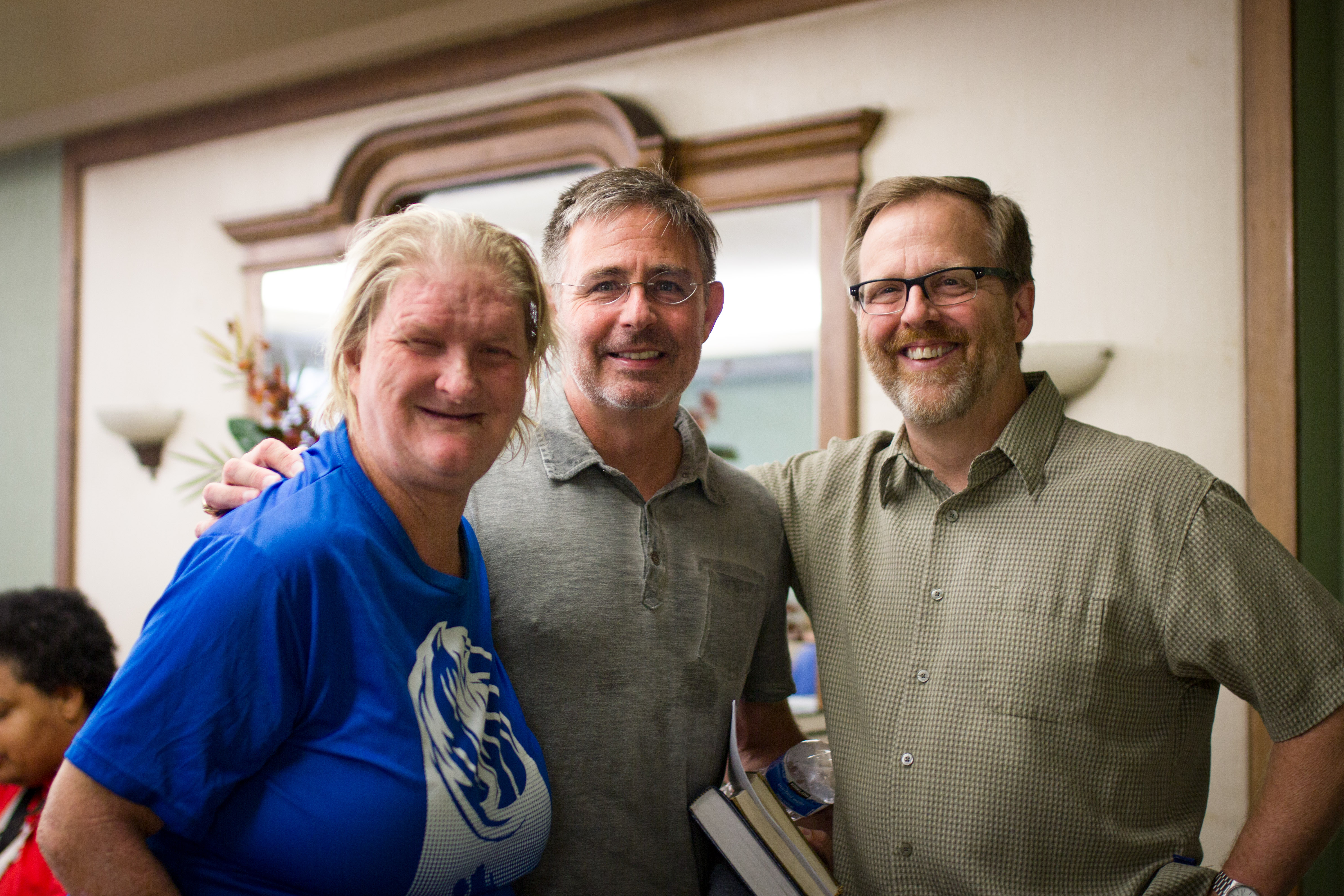
When you think of a nonprofit organization or ministry outreach, usually the first thing that comes to mind is the help provided to the people who receive services. We also consider how volunteers impact the lives of those who benefit from the activities. We want to know how donor dollars make a difference for those in need. But what if we turn that around and ask, “How is the community influenced by the those who receive services? How does the work of the nonprofit make its neighbors better people?”
We took that approach recently when talking with Dr. Brent McDougal, senior pastor of Cliff Temple Baptist Church, where The Well Community has housed its Community Life Center for 17 years. We wanted to know, “How has The Well Community helped to make Cliff Temple the kind of church it is today?”
Since the beginning, when Joel Pulis was on staff with Cliff Temple and founded The Well Community, the partnership was a natural fit for the church. McDougal explains: “Cliff Temple seeks to be a ‘big tent’ kind of church, caring for people whom Jesus cares for, in the ways he would. We seek to minister to people, not just spiritually, but the whole person, including their physical and emotional needs.” According to McDougal, the goal of outreach at Cliff Temple is to help others reach a place of independence. By renting out part of their building to The Well and by regular connection with Well Members, Cliff Temple is able to participate in The Well’s work to help those living with severe mental illnesses find stability and hope. Another outreach is Cliff Temple’s Mission Oak Cliff, which provides emergency food and clothing to families in the North Oak Cliff area, and offers counseling, advocacy services and educational opportunities.
While it is one thing to provide space and services to groups giving care, it a different thing to see how interactions with recipients change a congregation. Over the eight years he has been at Cliff Temple, McDougal has seen how connecting with members of The Well Community has demonstrated over and over again that caring for others is a two-way street. “There is a richness The Well members bring to the life of our church. As we worship side by side, we have learned that more than ‘people we help,’ they are our brothers and sisters in Christ, from whom we can learn deeper compassion and understanding,” says McDougal.
As an example, McDougal shares an encounter he had with one of The Well members. He and Johnny* had been at odds with each other over a number of things, over a number of years. But one day they had a chance meeting in the neighborhood and were able to have an honest conversation. McDougal learned things about Johnny that changed his understanding of Johnny’s struggles with mental illness and with life. In return, the pastor was able to be transparent about some of his own challenges. “In that conversation,” McDougal explains, “we both realized that we each have areas of brokenness and pain. I was honored that he invited me into his life as he shared with me. It created a strong bond between us. There are still difficulties in our relationship, but we are able relate better now.”
McDougal has this counsel for other churches: “When your groups volunteer at The Well they will find themselves growing in compassion and developing a deeper empathy for people all across the community. They will be able to learn the connections between homelessness, health crises, poverty, incarceration and mental illness. They will have a chance to engage with others in a personal way.”
McDougal believes that there is great power in community. “By working through our struggles together at a deeper level we find that we have the strength to keep going.”
According to McDougal, a few ways pastors can help their churches become stronger caring communities include:
- Be mindful that more people in your congregation are impacted by mental illness than you might think.
- Regularly acknowledge the real struggles of depression and severe mental health conditions.
- Have referral information and facts about mental illness handy, and know how to direct people to helpful resources.
- Teach your congregation to extend acceptance before expecting people to change.
- Be willing to adjust expectations, attitudes and schedules in order to care well.
- Help your congregation communicate hope to those who are dealing with mental health difficulties.
McDougal also believes the Church can help address the issue of stigma related to mental illnesses. “There is no silver bullet to solve the stigma problem. It takes effort. We have to suspend judgment and move from talking to listening.” He says we should all be advocates for greater resources to support care for those who deal with mental illnesses. “I would love for [Executive Director] Alice and her staff at The Well Community to have all the resources they need.”
You and your church or civic group could become a channel for resourcing The Well Community. To learn about volunteer opportunities, contact [email protected] or to make a donation, click here.
Be sure to follow us on Facebook, Twitter and Instagram to learn more about The Well Community, mental illnesses and how you can make a difference in the lives of those who deal daily with mental health challenges.
*Name changed
